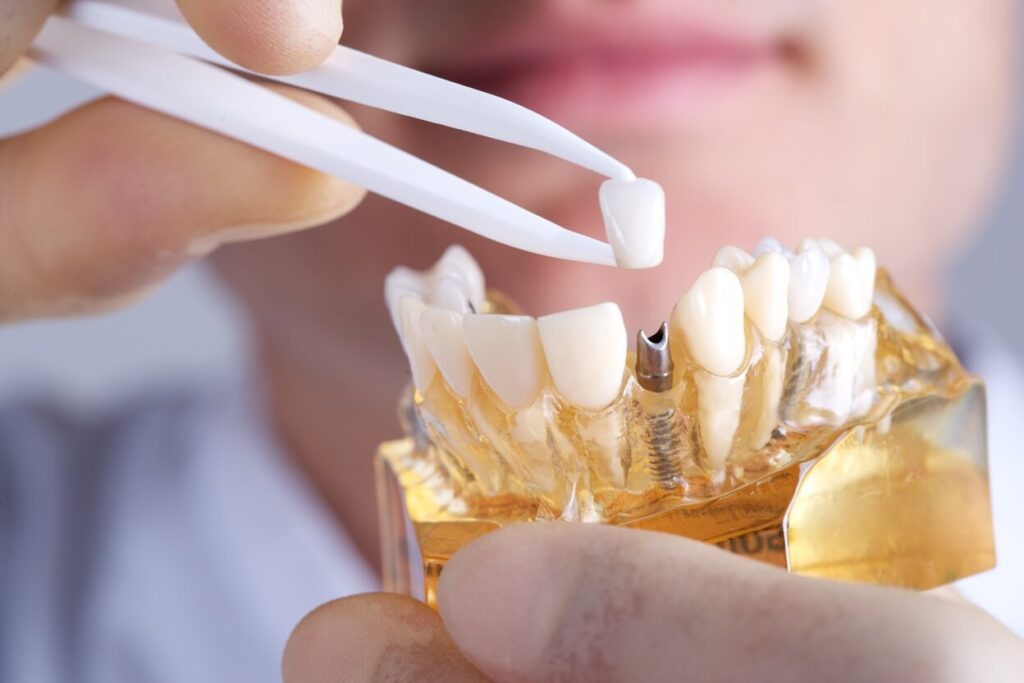Dental implants have emerged as the gold standard for replacing missing teeth, offering unparalleled aesthetic and functional benefits. However, the high cost of these titanium fixtures, often exceeding thousands of dollars per tooth, can put them out of reach for many low-income adults relying on Medicaid. So, can Medicaid actually help cover the steep price of dental implants?
The short answer is – it depends. While Medicaid generally considers implants an elective, cosmetic procedure, there are some exceptions when extreme tooth loss threatens overall health. Understanding your state’s specific provisions is key to determining if any implant coverage may apply.
Medicaid’s Stance on Dental Implants
As a joint federal-state program serving over 70 million low-income and disabled Americans, Medicaid’s standard adult benefits typically exclude extensive dental care like implants. States have the option to include implants under special circumstances, but only 12 state Medicaid programs offer any adult dental benefits beyond emergency extractions, usually limited to injury-related cases.
This lack of coverage stems from the high per-tooth costs, often surpassing $3,000 on average. With tight budgets, Medicaid prioritizes funds for medically essential services over perceived cosmetic treatments.
Exceptions: Medical Necessity and Age
In reality, missing teeth and untreated oral disease can significantly impact overall health, leading to bone loss, speech issues, malnutrition, diabetes, and heart complications. Proving these medical risks is key to potential Medicaid exception approvals.
States like New York cover implants for Medicaid adults when dentists and physicians document medical necessity, such as bone disorders, trauma, or cancer treatment. Age also plays a pivotal role, as those under 21 have access to comprehensive EPSDT dental benefits. If implants are prescribed under this early screening program, states must provide at least partial funding.
The Challenges with State Dependence
Since Medicaid is administered at the state level, dental implant coverage varies drastically. While New York approves cases showing medical necessity, a state like Georgia excludes implants entirely. This creates confusion and barriers to treatment.
Verifying specifics with your state Medicaid office is essential. Their handbook outlines covered services, exclusions, and prior authorization protocols. States also increasingly subcontract private dental insurers to manage benefits, further complicating the approval process.
Overcoming the Financial Obstacles
Even after securing Medicaid exception approvals, significant out-of-pocket expenses often remain, potentially equaling or exceeding $1,000 per implant. Low-income patients must then choose between debt or ongoing tooth loss risks.
Thankfully, alternatives to alleviate costs do exist:
- Dental schools & clinics – Receive discounted treatment from supervised students
- Medical credit cards – Finance procedures interest-free over time
- Dental savings plans – Gain access to reduced rates and financing options
- Crowdfunding – Fundraise implant costs through sites like GoFundMe
Weighing the Value of Dental Implants
Given their high price tag and inconsistent Medicaid coverage, determining if implants are the right choice requires careful consideration:
Pros
- Permanent tooth replacement
- Preserve bone and stimulate regrowth
- Retain full face shape and smile aesthetics
- Allow easier eating, clear speech, and self-confidence
Cons
- Invasive surgical procedure under anesthesia
- Extended treatment time of several months
- Risk of failure and additional costs
- Limited state Medicaid exceptions
For low-income adults struggling with severe tooth loss, implants can provide life-changing rehabilitation. But pursuing coverage through Medicaid requires persistence and often significant personal expense.
Are you considering dental implants but unsure about Medicaid coverage in your state? Contact the experts at RussianDent.com for personalized guidance on navigating the process and exploring affordable treatment options. As a trusted resource for expert dental guides and clinic reviews, we’re here to help you achieve your best smile.
